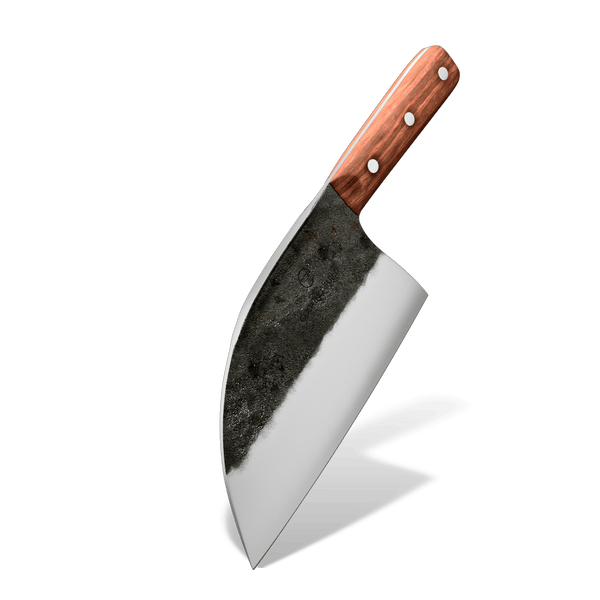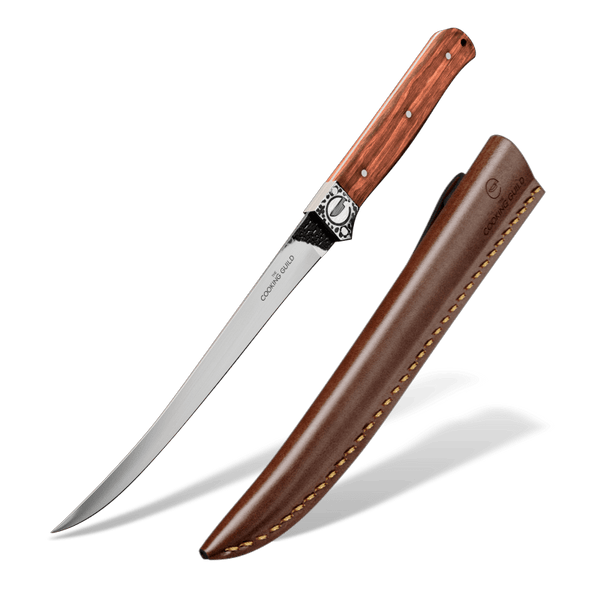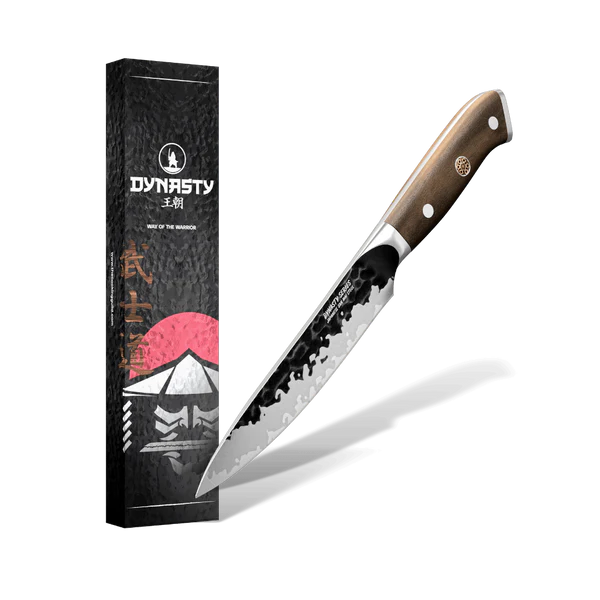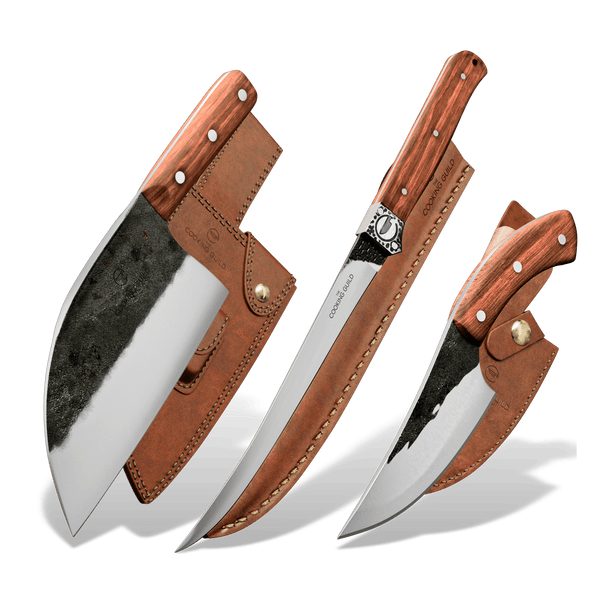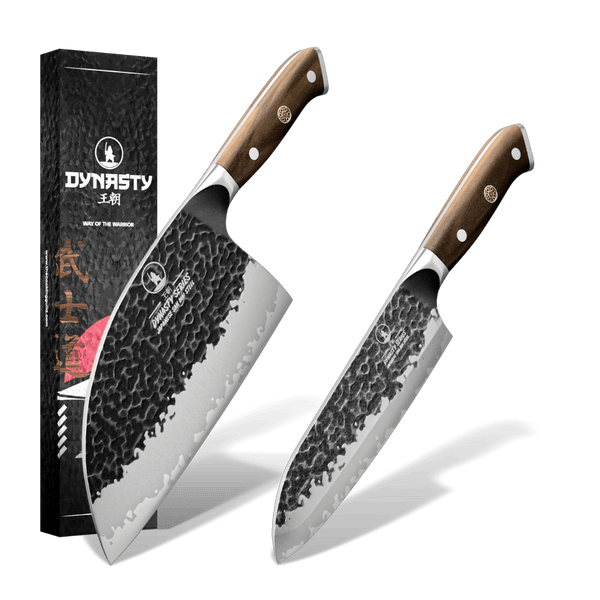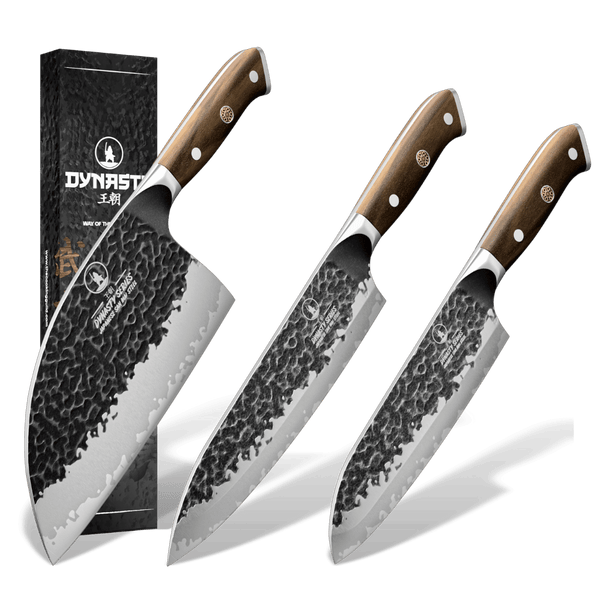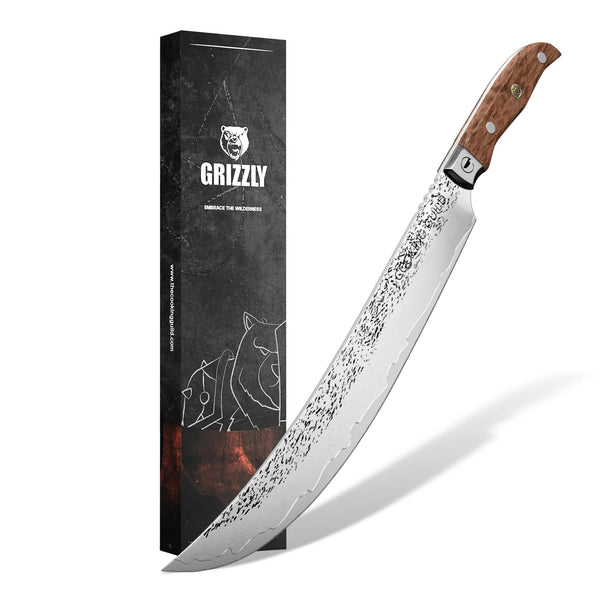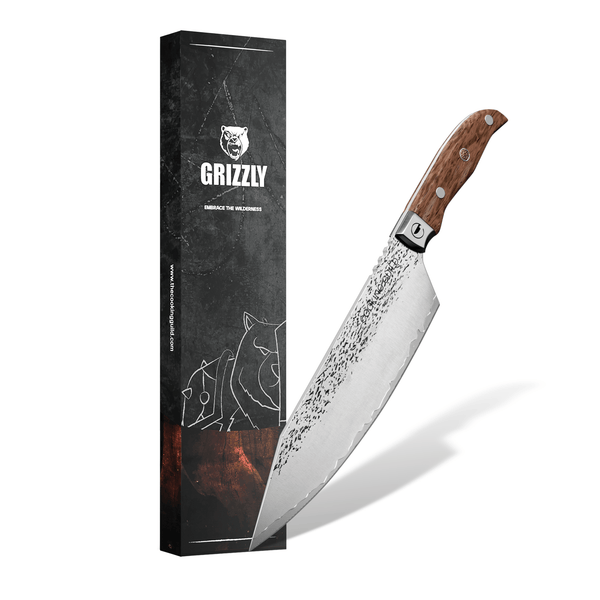We all love that first slice feeling—you know the one. When your knife glides through a tomato like butter or makes prepping herbs feel like a meditation. But if your blade feels more like a butter knife lately, it might not be the steel—it might be you (hey, no judgment!).
Here are a few sneaky things that could be dulling your knives faster than you think—and what to do instead to keep them slicing smoothly for the long haul.
1. Using the Wrong Cutting Board
We get it—glass or granite boards look fancy. But they’re secretly the villains of your kitchen.
✅ Why it matters: Hard surfaces like glass, marble, or ceramic wear down your blade's edge fast.
✅ What to do instead: Stick with wood (like end-grain or olive wood) or food-safe plastic boards. They’re gentler on your knives and just as easy to clean.
2. Letting Your Knives Clatter Around in a Drawer
You know that "knife drawer" filled with a chaotic tangle of utensils? Yeah... it’s a danger zone.
✅ Why it matters: Every time your knife bumps into another utensil, it risks dulling or chipping the edge.
✅ What to do instead: Store your knives on a magnetic strip, in a block, or use individual sheaths—like these leather ones that look as good as they protect.
3. Not Honing Regularly
Even the best knives need a little TLC. A lot of people skip honing and jump straight to sharpening, but the truth is, honing is your first line of defense.
✅ Why it matters: Honing realigns the edge of your knife and helps it stay sharper longer between sharpenings.
✅ What to do instead: Get yourself a honing steel and use it every few uses—especially if you're prepping big meals or working with meat.

4. Cutting on the Wrong Foods
Yup, even food can be your knife's enemy.
✅ Why it matters: Chopping through bones, frozen food, or seafood with shells (like crab or lobster) can chip the blade or damage the edge—especially if the knife isn’t designed for heavy-duty tasks.
✅ What to do instead: Use a blade built for the job, like the Kaiju Hybrid Cleaver, which has a dual-edge design: thick near the handle for bones, and thin at the front for slicing.
5. Running Knives Through the Dishwasher
It’s convenient, sure. But dishwashers are knife killers.
✅ Why it matters: The intense heat, water pressure, and contact with other utensils can corrode, dull, and damage the blade—and even loosen the handle over time.
✅ What to do instead: Wash your knives by hand with warm soapy water, dry immediately, and store safely. It only takes a minute and makes a massive difference.
🔪 A Few of Our Sharpest Tools That Deserve Some Love:
Nomad Series Honing Steel

-
Chrome-coated high carbon steel rod
-
10” long with ergonomic burl wood and epoxy handle
-
Keeps your knives aligned and razor-sharp
Kaiju Hybrid Cleaver

-
AUS-8 Japanese Steel with dual-edge profile
-
Perfect for bones and precision slicing
Nomad Series Leather Sheaths

-
Durable and beautiful storage for your knives
-
Protects your blades from damage
At the end of the day, a little knife care goes a long way. Treat your blades right, and they’ll keep slicing like new—whether you’re prepping a weeknight stir-fry or hosting the neighborhood BBQ.
Need help picking the perfect blade or accessory? We’ve got your back.
